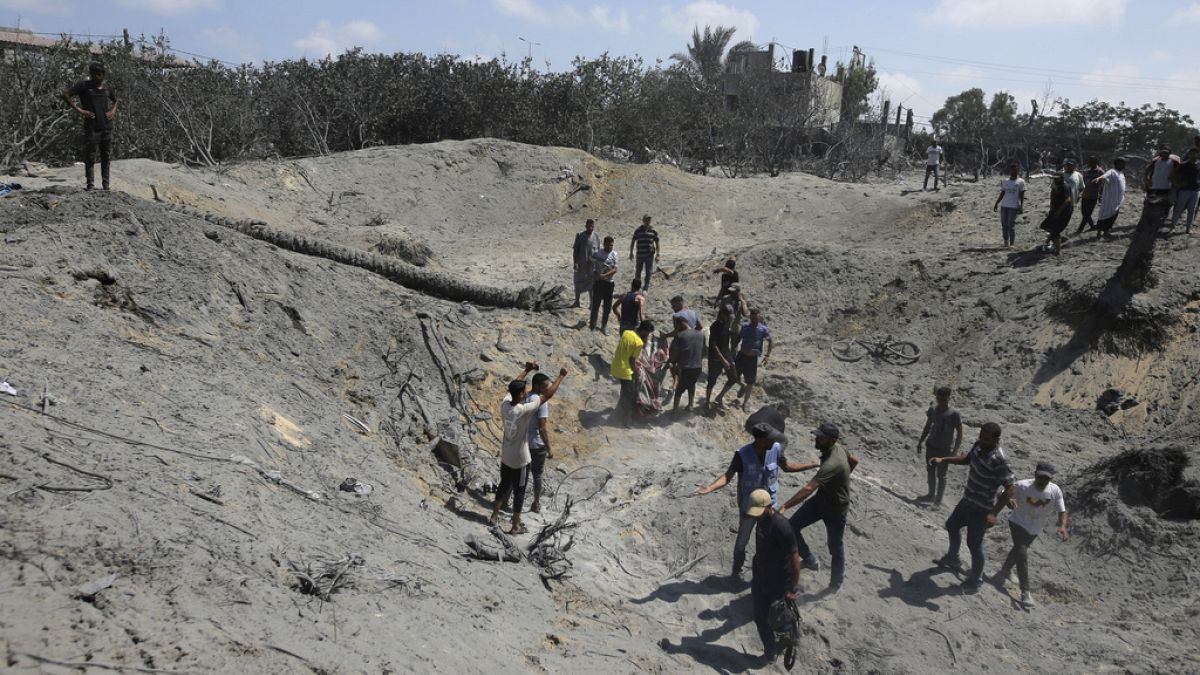The leader of Hamas’ military operations, Mohammed Deif, was killed in a targeted airstrike by Israel in Gaza in July, as confirmed by the IDF. The strike took place on the outskirts of the southern Gaza city of Khan Younis, where a compound was hit. Hamas had previously denied his death and there had been uncertainty about it for weeks. However, after an intelligence assessment, the Israeli military confirmed Deif’s elimination in the strike. Hamas has not made any comments on the announcement. The strike also resulted in the deaths of over 90 other individuals, including displaced civilians in nearby tents.
In addition to the killing of Mohammed Deif, Hamas’ top political leader, Ismail Haniyeh, was also reportedly killed in an apparent Israeli airstrike in Tehran. While Israel has not officially claimed responsibility for the attack, Iran has vowed retaliation. Israel has also expressed its intentions to eliminate Yahya Sinwar, Hamas’ top leader in Gaza, although he has managed to evade capture so far. Israel alleges that Sinwar and Deif were responsible for orchestrating the 7 October attack, where Hamas-led militants carried out deadly attacks on Israeli communities, resulting in many casualties and hostages.
Mohammed Deif was a prominent figure in Hamas, being one of the founders of the militant group’s military wing, the al-Qassam Brigades, in the 1990s. He served as the leader of the unit for many years, overseeing numerous suicide bombings against Israelis as well as the development of a powerful rocket arsenal capable of reaching deep into Israeli territory. The al-Qassam Brigades are categorized as a terrorist organization by various countries, including the EU, the UK, Egypt, Australia, and New Zealand.
The death of Mohammed Deif marks a significant blow to Hamas’ military capabilities and leadership structure. Deif’s role in orchestrating attacks against Israel and building up the group’s arsenal of rockets made him a key figure within Hamas. The confirmation of his death by the Israeli military highlights the ongoing conflict between Israel and Palestinian militant groups like Hamas. The killing of Deif is seen as a major victory for Israel in its efforts to combat terrorism and protect its citizens from attacks.
The airstrike that killed Mohammed Deif and other militants underscores the complex and volatile situation in the region, with tensions running high between Israel and Hamas. The ongoing cycle of violence and retaliation between the two sides continues to pose a threat to stability in the Middle East. The recent escalations in violence have raised concerns about the humanitarian situation in Gaza, with innocent civilians bearing the brunt of the conflict. The international community has called for both sides to exercise restraint and work towards a peaceful resolution to the conflict.
Overall, Mohammed Deif’s death in the Israeli airstrike is a significant development in the ongoing conflict between Israel and Hamas. The elimination of a key Hamas leader highlights the challenges and complexities of the situation in Gaza, with the potential for further escalations in violence. As tensions persist in the region, the need for dialogue and diplomacy to address the root causes of the conflict becomes increasingly urgent. The international community plays a crucial role in supporting efforts to achieve a lasting peace in the region and prevent further loss of life.










